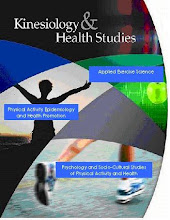Academic respect seems to have taken a very different meaning in the transition to grad school. When you do well in undergraduate you are coddled. You get a good grade and feel good about it, ask for letters of reference, and have profs express how delighted they are to help you succeed in the academic path before you.
Grad school is different. I was invited to participate in a campus debate on Gender Identity Disorder’s inclusion in the DSM. I agreed expecting to be on a panel of undergrads. Not the case. I am on a panel with Dr. Myra Hird (a distinguished sociology professor), Dr. Margo Rivera (clinical practitioner), and Kristin Ireland (Ph.D. candidate who’s done a number of campus presentations). I don’t feel ready to have my name beside theirs. I am prepping for this, as I have to come to prep for conferences and even class, ready to be grilled.
Academic respect is now signified through an interrogation of every assumption or failed consideration. While this means that every time you speak it may feel as though you have opened yourself up for attack, I have never before been pushed so hard to think before I speak. There is a sense of empowerment that comes with this form of academic conversation. It is expected that I can hold my own and that when someone challenges me I will have the intellectual momentum to keep up. That’s pretty cool.
Monday, June 15, 2009
Friday, June 5, 2009
Travis Saunders - Exercise and Peripheral Artery Disease

Like most people, I have been aware of the problems associated with reduced blood flow to the heart for quite some time (angina, heart attacks, etc). However, I recently became aware of a related condition known as peripheral artery disease (PAD) when it was diagnosed in a friend of my family. PAD refers to the obstruction of arteries in the arms and legs, and can result in reduced blood flow to muscles below the obstruction. As well as being a risk factor for heart disease, the reduced blood flow associated with PAD can cause significant amounts of pain in the legs when walking even short distances, and can be very debilitating. Not surprisingly given the increased prevalence of risk factors including obesity and diabetes in recent years, the prevalence of PAD is also increasing.Given the serious impact that PAD has had on my friend's mobility, I was pleased when I came across an article examining the positive influence of exercise on PAD in the latest issue of the Journal of Physiology. Taylor and colleagues blocked the femoral artery in rats, then examined blood flow to muscles below the blockage after three weeks of exercise 'training' or a 3 weeks of being confined to their cage. Both groups developed 'collateral' blood vessels to re-route blood around the obstruction, which is pretty cool in and of itself. However, the exercise training group developed larger collateral vessels than the sedentary group, resulting in significantly increased blood flow to muscles below the obstruction in the exercise training group. Although the rats can't verbalize how they feel, I would expect that with increased blood flow the rats in the exercise group would also feel less pain in their legs than those in the sedentary condition.I was most excited to see this study because among other things, my acquaintance has begun a daily walking program and their symptoms have improved considerably since their training began. Exercise is not the only answer for problems like PAD, but it's nice to see that something as simple as a walking program can be part of the solution.
Subscribe to:
Posts (Atom)

